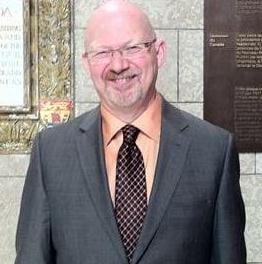Another day, another Rob Anders controversy.
The Conservative MP from Calgary West made headlines again Oct 4 after a petition was posted to his website encouraging his constituents to oppose Bill C-279, legislation intended to end discrimination against transgender and transsexual people.
Anders caused a separate uproar on Oct 1 for suggesting federal NDP Leader Thomas Mulcair accelerated Jack Layton’s death.
The petition states that the goal of the “Bathroom Bill” is to “give transgendered men access to women’s public washroom facilities.”
Randall Garrison, the LGBT issues critic for the NDP, is disappointed – but not surprised.
“It’s what we’ve come to expect from Mr Anders,” he says. “The petition is obviously based on misinformation, ignorance and fear.”
Look no further, says Garrison, than Anders’ erroneous terminology in the petition. The petition says the bill would give “transgendered men access to women’s public washroom facilities.” In actuality, transgender men use men’s washrooms. However, the bill does not contain anything that legislates bathroom usage.
“They’ve got it all backwards,” Garrison says, pointing out another curious aspect of the petition. Anders has encouraged his constituents to sign a petition that his office, ostensibly, wrote. That’s not quite how the petition system is support to work, Garrison says. It’s supposed to be a system that allows Canadians to pressure their elected officials on legislation, not the reverse.
“It’s unusual,” he says. “I don’t know that I’ve ever seen it.”
“I don’t understand Mr Anders’ motivation for a lot of his statements,” he says.
REAL Women of Canada, a socially conservative organization that has been targeting Conservative MPs who supported the bill, endorses Anders’ petition.
Diane Watts, a representative for the group, says the “unnecessary” bill is an “effort to change severely the gender norms of our culture.”
Watts says many trans people and their allies would use this bill to discriminate against “anyone who wants to support gender norms.” She says the bill could be used to propagate information about trans issues – such as in schools – echoing the call in Anders’ petition to “protect and safeguard our children.”
Watts cites NARTH – a largely discredited gay conversion institute – and one John Hopkins study from 1979 as the basis for REAL Women’s position on trans issues.
Anders’ office did not return Xtra’s repeated calls for comment.
Bill C-279 has seen the floor of the House of Commons many times since its inception in 2005 and has faced opposition from its challengers every step of the way.
But this time around, it appears as though there’s a light at the end of the tunnel. The bill should be coming before committee in late November, where it will face a handful of amendments, including one that defines “gender identity,” before coming back to the House.
“I’m optimistic,” Garrison says.


 Why you can trust Xtra
Why you can trust Xtra


